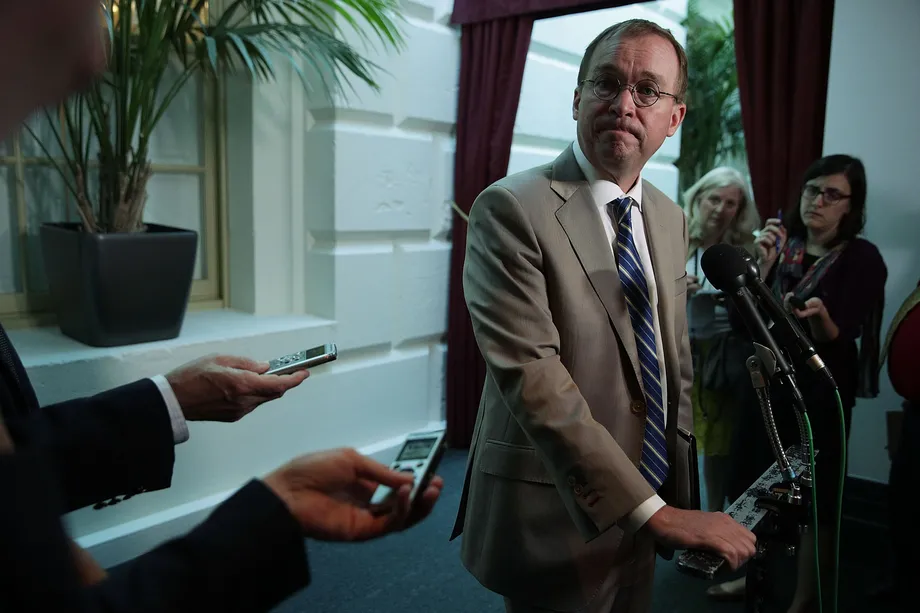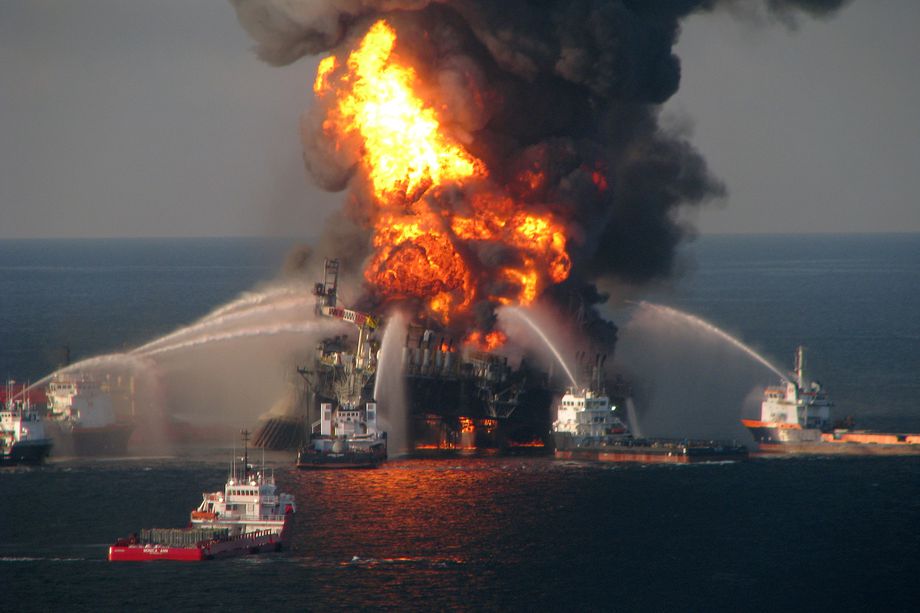source: Investopedia
Regulatory Capture:
Regulatory capture is a theory associated with George Stigler, a Nobel laureate economist. It is the process by which regulatory agencies eventually come to be dominated by the very industries they were charged with regulating. Regulatory capture happens when a regulatory agency, formed to act in the public's interest, eventually acts in ways that benefit the industry it is supposed to be regulating, rather than the public.
Mick Mulvaney once called the CFPB a “sick, sad” joke. Now he might be in charge of it.
The Trump administration’s budget-cutter is poised to lead the consumer watchdog bureau he has attacked.
Updated by Emily Stewart Nov 16, 2017, 4:50pm EST

OMB Director Mick Mulvaney. Alex Wong/Getty Images
President Donald Trump’s rumored pick to temporarily head the Consumer Financial Protection Bureau is a conservative budget-cutter who once called the agency a “sick, sad” joke.
Office of Management and Budget Director Mick Mulvaney is, according to reports from Bloomberg and CNN, under consideration to become interim director of the federal government’s consumer watchdog after current director Richard Cordray steps down later this month. Mulvaney has made little secret of his distaste for the agency in the past.
“It’s a wonderful example of how a bureaucracy will function if it has no accountability to anybody,” Mulvaney, a former South Carolina representative, said in a 2014 interview with the Credit Union Times. “It turns up being a joke, and that’s what the CFPB really has been, in a sick, sad kind of way, because you’ve got an institution that has tremendous authority over what you all do for a living.”
In the same interview, he called the CFPB “extraordinarily frightening.” He said that “some of us would like to get rid of it” altogether but acknowledged that it was unlikely, instead proposing reforms such as replacing the single director with a five-person commission.
When asked by Sen. Jeff Merkley (D-OR) about the comments during one of his confirmation hearings to become OMB director in January, Mulvaney stood by them.
“Do you still believe the CFPB is a sad, sick joke?” Merkley asked.
“Yes, sir, I do,” he said.
He went on to say that the agency, created under the Dodd-Frank financial overhaul, is run by “essentially a one-person dictator” and added he had “probably had more complaints about the CFPB in my office, from small local banks and credit agencies, than every other government agency put together.”
Now Mulvaney is reportedly poised to become that “one-person dictator.” He would be another in a string of appointees who have previously attacked the agencies they now head, including EPA Administrator Scott Pruitt, who sued the agency as Oklahoma attorney general, and Energy Secretary Rick Perry, who previously proposed abolishing the department he now heads.
The White House declined to comment on whether Mulvaney would indeed be Trump’s interim pick. "The Administration will announce an acting director and the President's choice to replace Mr. Cordray at the appropriate time,” said spokesperson Raj Shah in an emailed statement.
Regulatory Capture:
Regulatory capture is a theory associated with George Stigler, a Nobel laureate economist. It is the process by which regulatory agencies eventually come to be dominated by the very industries they were charged with regulating. Regulatory capture happens when a regulatory agency, formed to act in the public's interest, eventually acts in ways that benefit the industry it is supposed to be regulating, rather than the public.
-----------------------------------------------------------------------------
source: VoxMick Mulvaney once called the CFPB a “sick, sad” joke. Now he might be in charge of it.
The Trump administration’s budget-cutter is poised to lead the consumer watchdog bureau he has attacked.
Updated by Emily Stewart Nov 16, 2017, 4:50pm EST

OMB Director Mick Mulvaney. Alex Wong/Getty Images
President Donald Trump’s rumored pick to temporarily head the Consumer Financial Protection Bureau is a conservative budget-cutter who once called the agency a “sick, sad” joke.
Office of Management and Budget Director Mick Mulvaney is, according to reports from Bloomberg and CNN, under consideration to become interim director of the federal government’s consumer watchdog after current director Richard Cordray steps down later this month. Mulvaney has made little secret of his distaste for the agency in the past.
“It’s a wonderful example of how a bureaucracy will function if it has no accountability to anybody,” Mulvaney, a former South Carolina representative, said in a 2014 interview with the Credit Union Times. “It turns up being a joke, and that’s what the CFPB really has been, in a sick, sad kind of way, because you’ve got an institution that has tremendous authority over what you all do for a living.”
In the same interview, he called the CFPB “extraordinarily frightening.” He said that “some of us would like to get rid of it” altogether but acknowledged that it was unlikely, instead proposing reforms such as replacing the single director with a five-person commission.
When asked by Sen. Jeff Merkley (D-OR) about the comments during one of his confirmation hearings to become OMB director in January, Mulvaney stood by them.
“Do you still believe the CFPB is a sad, sick joke?” Merkley asked.
“Yes, sir, I do,” he said.
He went on to say that the agency, created under the Dodd-Frank financial overhaul, is run by “essentially a one-person dictator” and added he had “probably had more complaints about the CFPB in my office, from small local banks and credit agencies, than every other government agency put together.”
Now Mulvaney is reportedly poised to become that “one-person dictator.” He would be another in a string of appointees who have previously attacked the agencies they now head, including EPA Administrator Scott Pruitt, who sued the agency as Oklahoma attorney general, and Energy Secretary Rick Perry, who previously proposed abolishing the department he now heads.
The White House declined to comment on whether Mulvaney would indeed be Trump’s interim pick. "The Administration will announce an acting director and the President's choice to replace Mr. Cordray at the appropriate time,” said spokesperson Raj Shah in an emailed statement.



